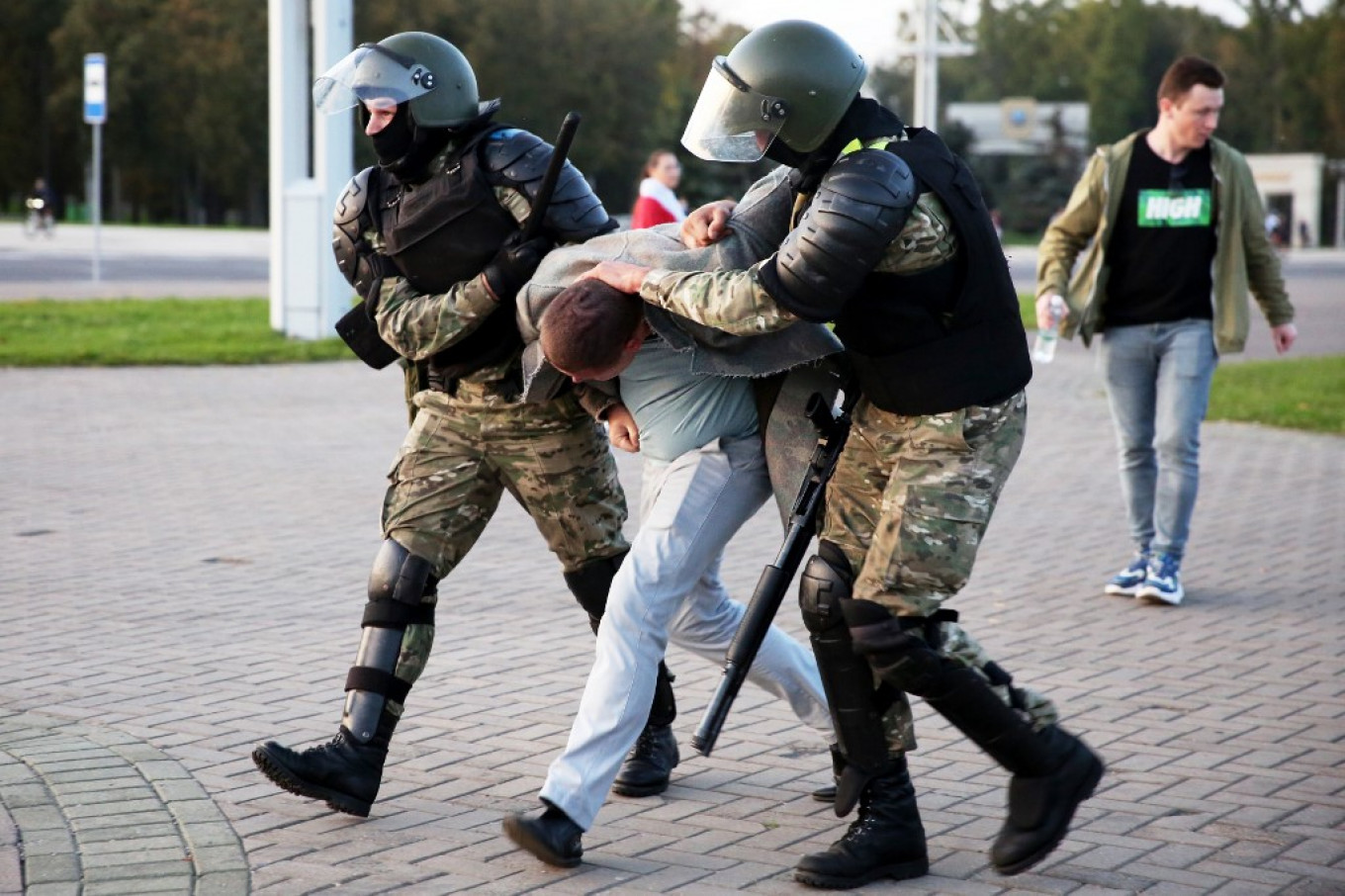Several thousand protesters, many carrying the red-and white opposition flag, took to the streets of the capital Minsk and other cities following a surprise announcement that Lukashenko had been sworn into a sixth term in office following disputed elections in August.
Clashes between masked riot police and protesters broke out in Minsk, with the Viasna rights group saying that more than 150 people had been arrested in the capital, as well as the southwestern city of Brest and other places. Several European countries including Germany and United States responded to Lukashenko’s inauguration by refusing to recognise him as the president of the ex-Soviet state.
“The announced results were fraudulent and did not convey legitimacy,” a State Department spokesperson said in Washington. “The United States cannot consider Alexander Lukashenko the legitimately elected leader of Belarus.”
The state-run Belta news agency broke the news that Lukashenko had “taken office as President of Belarus” during a ceremony in the Palace of Independence on Wednesday.
“I can’t, I don’t have the right to abandon Belarusians,” Lukashenko said in his inaugural address according to a transcript of his remarks later released by his office. He blamed the mass protests since August, which have seen tens of thousands take to the streets, on “disorientation of society” and thanked law enforcement for showing “firmness”.
Lukashenko said he and his allies had “prevented a catastrophe”, though the ceremony in front of 700 guests drew mockery from critics. On Wednesday evening, several thousand protesters took to the streets, with some chanting “Long live Belarus” and others wearing cardboard crowns.
Many derided the 66-year-old, who has been in power since 1994.
Tear gas was used during scuffles between police and protesters.
Earlier in the day Lukashenko’s opposition rival Svetlana Tikhanovskaya reiterated her claim to be the true winner of the elections, saying the “so-called inauguration is of course a farce”.
Diplomatic reaction in Western capitals was swift. Germany does not recognise Lukashenko as president of Belarus, said government spokesman, Steffen Seibert, adding his re-election lacked “democratic legitimacy.”
Others including the Slovak Foreign Minister Ivan Korcok and Danish counterpart Jeppe Kofod made similar statements, as did the Baltic states, the Netherlands and the Czech Republic.
There was no immediate comment from Russia. Russian President Vladimir Putin has promised law enforcement backup if needed, as well as a $1.5 billion loan.
Over the past month riot police have detained thousands of protesters who have reported torture and abuse in custody, prompting international condemnation and proposed EU sanctions. European Union foreign ministers on Monday failed to agree sanctions over the political crisis.

